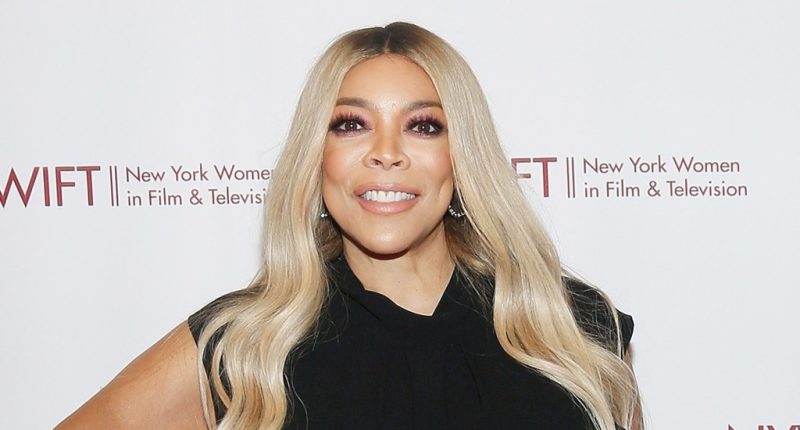In the days before Lifetime’s controversial documentary looking at Wendy Williams’ struggles with health and addiction aired in late February, A+E Networks engaged in a last-minute legal battle with the former daytime TV personality’s court-appointed guardian, who it alleges in legal documents unsealed this week had used the courts to prevent the film’s release as it portrayed her in a negative light.
On Friday, the New York County Supreme Court unsealed the motion to reverse the restraining order that Sabrina Morrissey, Williams’ court-appointed guardian since 2022, had successfully petitioned for as she filed a lawsuit on Feb. 22 against A+E Networks to block the release of Where Is Wendy Williams? The freshly unsealed court records paint a different story that indicates Morrissey allegedly only sought to keep the documentary from public view when it became clear that she and her guardianship of Williams would not be portrayed positively in the film.
“Only after seeing the documentary’s trailer and realizing her role in Ms. [Williams’] life may be criticized did Ms. Morrissey enlist the courts to unconstitutionally silence that criticism,” A+E Networks attorney Rachel Strom wrote in a petition to vacate the order.
In 2022, Williams was placed under financial guardianship after Wells Fargo claimed she was an “incapacitated person” and a “victim of undue influence and financial exploitation.” She contested the appointment of a guardian, saying that her health had improved and that she was “absolutely” of sound mind after receiving treatment for Graves’ disease and thyroid issues. It was later revealed that the financial exploitation stemmed from purchases made by her son, Kevin Hunter Jr., who addressed this in the docuseries.
In the court documents related to Morrissey’s suit, which were unsealed on March 14, Williams’ guardian argued that the contract A+E Networks brokered to shoot the documentary was not valid, as Williams had neither the legal or mental capacity to authorize her own participation in the shoot. The filing called the project a “blatant exploitation of a vulnerable woman with a serious medical condition.” Morrissey successfully won the emergency restraining order but it was quickly reversed by Appellate Justice Peter H. Moulton, who found that stopping the company from airing the documentary would be an “impermissible prior restraint on speech that violates the First Amendment of the Constitution.”
The documents unsealed Friday laid out the argument that led to this reversal and allowed the controversial four-and-a-half hour documentary to air as planned, ultimately to record-breaking ratings on Feb. 24 and 25. Attorneys for A&E called the court order a “substantial prior restraint” that amounts to “an extraordinary violation of [the company’s] constitutional rights.” They also alleged Morrisey allowed the production of the documentary to go forward and only took legal action after viewing a trailer for the film on Feb. 2; the attorneys noted that it took her three weeks to take legal action, as she waited until the eve of the documentary’s planned airing on Lifetime to attempt to gag the filmmakers and the company and “silence” Williams.
“Even more egregious, she has known about the existence of the documentary since at least February 2023, and of the talent agreement — the unenforceability of which supposedly justifies a permanent bar on release of the documentary — since at least April 2023,” the company’s lawyers wrote in the filing. “Nevertheless, she sat and did nothing for nearly a year. If plaintiff, as Ms. [Williams’] guardian, was so worried about Ms. [Williams] being filmed in a sensitive state, [Morrissey] had months and months to seek a remedy, intervene in filming, or voice her concerns to defendants, Ms. [Williams] or/or her family. [Morrissey] did not, and her delay is contrary to the supposed need for emergency relief.”
A&E also countered the notion that Morrissey was concerned about the “embarrassing, harmful, degrading, and untruthful nature of the documentary and its use of footage of [Williams] while patently disabled and incompetent,” as she’d indicated in her lawsuit. Lawyers for the company pointed out that as the legal drama unfolded in late February, a press release was issued by Williams’ so-called “care team” (who they presume is only Morrissey) announcing that the ailing daytime star had primary progressive aphasia and frontotemporal dementia. Williams had already been diagnosed with Graves’ disease and lymphedema, which is the buildup of fluid in soft body tissues.
“The information plaintiff seeks to avoid becoming public was detailed in the press release put out by [Williams’] care team — presumably the plaintiff here,” the lawyers wrote, saying that with the press release, Morrissey was “apparently issuing publicity, putting herself in the best possible light, she seeks to literally silence Ms. [Williams] and her family from sharing the same information simply because they do not see plaintiff in the same ways she sees.”
The motion to vacate also argued against Morrissey’s attempt to void the talent agreement Williams signed with the producers of the documentary — which is something of a continuation of a previous documentary, Wendy Williams: What a Mess that she’d participated in years prior to her diagnosis. The agreement with Williams and the producers was signed in January 2023, prior to her dementia diagnosis. Attorneys also claimed that there is no allegation of defamation of Williams or violation of her privacy and that they were not required to obtain consent to show the footage they shot over several months spent filming her.
Williams was also paid a “substantial sum” for her participation in the documentary, the attorneys noted. Where Is Wendy Williams? producer Mark Ford previously told The Hollywood Reporter that “if we had known that Wendy had dementia going into it, no one would have rolled a camera.” He added, “At a certain point we were more worried about what would happen if we stopped filming than if we continued.”
Erica Hanson has told THR that when Morrisey was contacted to participate in the film that the attorney and caretaker “wouldn’t take my calls.” This non-participation in the film is also indicated in the court documents filed by A&E.
The A&E attorneys also argued that the Where Is Wendy Williams? airing would be very much in the public interest, as it deals with the issue of conservatorship, which gained national attention when the legal appointment of Britney Spears’ father was called into question and led to the #FreeBritney movement.
In Where Is Wendy Williams?, the ex-TV host’s sister, Wanda, suggested that she was willing to take on the role of her guardian as she struggles with her health: “I was told that it involved taking some kind of class, and I said, ‘Yeah I’ll do it.’ I said, ‘Whatever I gotta do, I’ll be focused on Wendy’s health.’ And then, all of a sudden, the wall came down and there was nothing.”
Also Read More: World News | Entertainment News | Celebrity News







